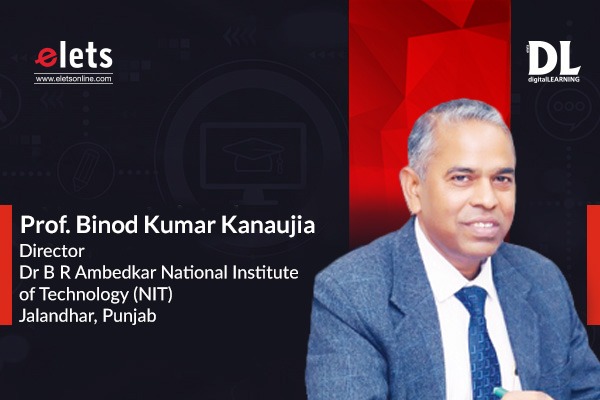An educated population understands the importance of interdependence in every aspect of human existence and works towards creating and sustaining that ecosystem. This starts at the early impressionable age and the right nurturing environment at school plays a critical role, shared Nisha Bhakar, CEO – Education, Chinta Sasidhar Foundation ( Nandha Gokulam Life School ), Hyderabad in an exclusive conversation with Sheeba Chauhan of Elets News Network. Edited excerpts:
Can you tell us about the unique educational approach at Nandha Gokulam Life School? How does it differ from traditional educational models?
Nandha Gokulam Life School (NGLS) stands for the desire to create, make a difference, and challenge the traditional ideas of what a school should and shouldn’t be. The school focuses on students engaging with life at large and beyond textbooks. The environment is fearless where dialogue and different ideas are investigated and respected.
The campus has indigenous cow breeds that are adopted and attended by students and teachers during their entire school stay. The student’s day schedule keeps dedicated time when the NGLS community engaging and learns about the local and medicinal plants and agricultural practices.
The staff is trained all through the year to play the role of a coach and mentor to the students and continuous assessments and constructive feedback become part of school’s daily routine. Educators understand the need and importance of differential instructions and alter their pedagogies accordingly.
NGLS stands for its culture of learning and growth mindset and we are dedicated to building a culture of reading and dialogue amongst all members.
What is the vision and mission of the Chinta Sasidhar Foundation, and how does it align with beliefs about education?
An educated population understands the importance of interdependence in every aspect of human existence and works towards creating and sustaining that ecosystem. This starts at the early impressionable age and the right nurturing environment at school plays a critical role.
The vision of Chinta Sasidhar Foundation, CSF is to create a compassionate world in which humans live a happy, contented and free life. They are connected to and coexist with the environment, animals, and people around them, giving and finding the space required to live fully and freely.
What role do you see Nandha Gokulam Life School playing in the broader educational landscape in India as a whole?
There aren’t many business houses in India that have invested in creating an international residential school with a vibrant teaching community and facilities for the lesser privileged students across the country. Chinta Sasidhar Foundation (CSF) has taken up this bold step with the belief that every child deserves the right schooling environment that supports inner transformation and liberates the mind. Our team would work tirelessly to help students and teachers realise their true potential, awaken them to their strengths and their responsibilities as a member of the society and act as an aware inhabitants of the earth.
What are your future plans for the Chinta Sasidhar Foundation and Nandha Gokulam Life School?
Chinta Sasidhar Foundation (CSF) intends to play a critical role in education by setting up meaningful learning ecosystems for all those who are connected with education. NGLS is our 1st international residential school for lesser privileged students followed by a few more schools offering national and international qualifications for students across socio-economic strata of our society. Nurturing a community of teachers and school leaders who are open to dialogue and willing to challenge the existing school system is in the pipeline too.
Can you tell us about any partnerships or collaborations that have been particularly impactful for the Chinta Sasidhar Foundation?
Learning in school happens in different ways and the most important partnership that we are focused on is that between humans, animals, and plants. The day at school is structured in a way where every member of the school interacts with cows, calves, and bulls and also works on organic farms on campus. NGLS is working on collaborating with the best in outbound education providers as well as agencies that would support us in implementing a structured sports curriculum. An empowered teacher is pivotal in making happy and fearless schools and hence a lot of focus will be given in ensuring regular interaction with different trainers. Partners who would engage students in dialogues on our rich Indian cultural heritage and literature are going to be part of NGLS journey too.
The World Education Summit has been igniting transformation in the education industry since its initial edition. What are your thoughts on being a part of the 26th edition of this global platform on 4-5 July in New Delhi?
I congratulate and applaud the team of World Education Summit for actively and consistently striding towards making the right noises and asking the right questions to ensure we create a society that is more responsible, reasonable and fair to themselves and everyone around. It’s exciting and interesting to be part of a forum where one shares and learns from not just the school leaders but higher education leaders and government officials as well.


























